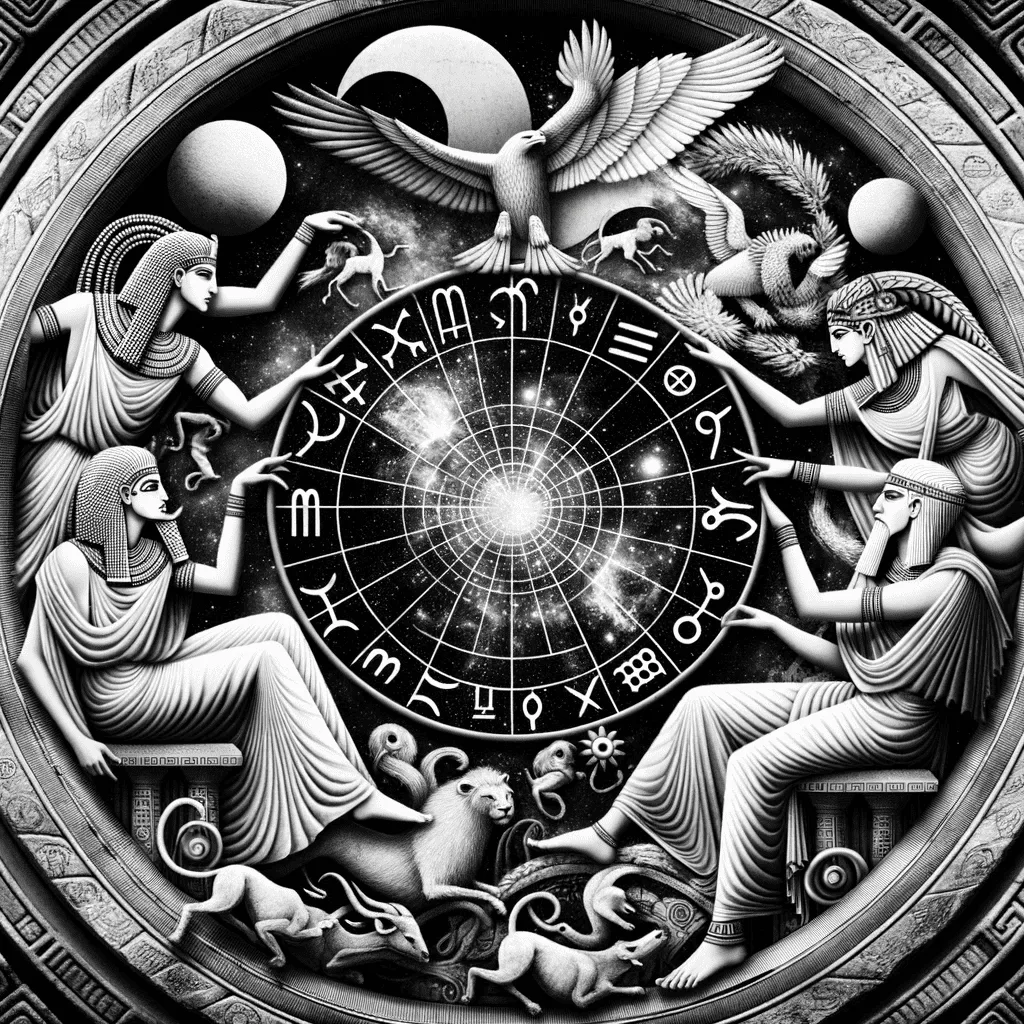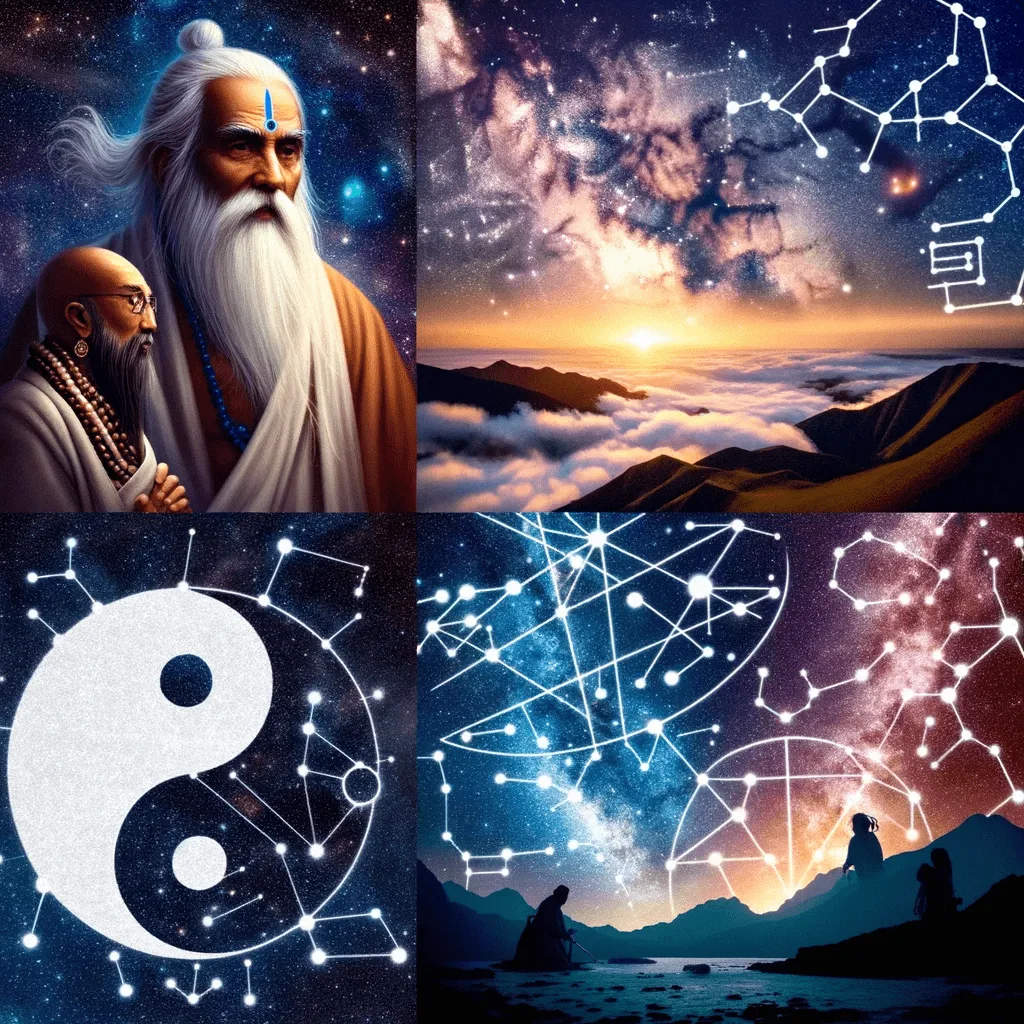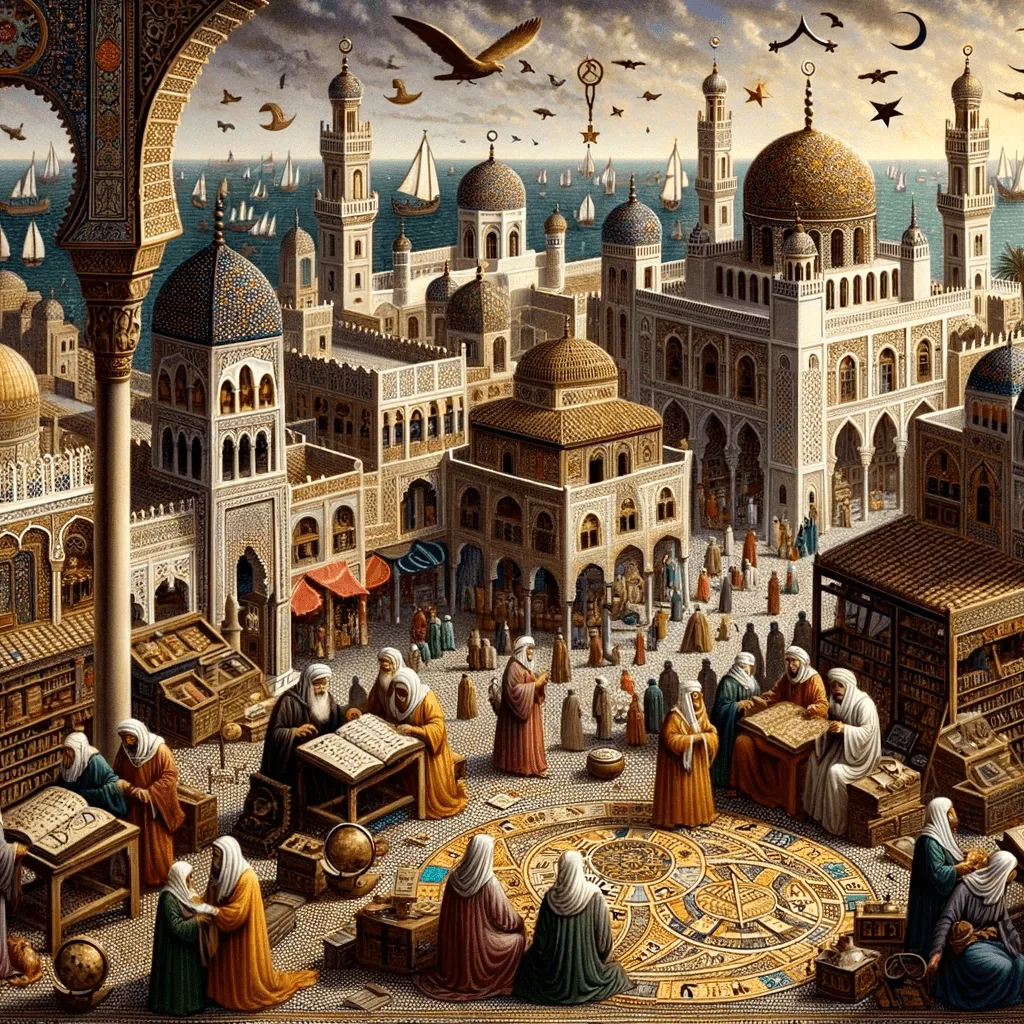
The Ancient Pathways Of Astrological Wisdom
In the celestial tapestry that envelops our night sky, lies the age-old practice of astrology, an astral science that has permeated civilizations and epochs, intertwining the destiny of mankind with the cosmic ballet above. "Where did astrology come from?" acts not just as an inquiry into its roots, but also as an exploration of how our ancestors viewed themselves within the cosmic framework.
article by Priya Deshmukh
Early Stargazers: Sowing the Seeds of Astrology
Embarking upon our astral journey, we are transported to ancient Babylon, around the second millennium BCE, where the preliminary threads of astrology were woven.
.webp)
The Babylonians, astute astronomers, began connecting celestial patterns with earthly events, sowing the initial seeds of astrological thought. This astral knowledge seeped into various civilizations through trade, conquest, and intellectual exchange, laying the foundational stone for what would evolve into the astrology we recognize today.
The Egyptian and Greek Synthesis: A Marriage of Myth and Cosmos Journeying onwards, the astral thread intertwines with the ancient Egyptians and Greeks, where mythology and cosmos danced in a mesmerizing duet. The Egyptian penchant for celestial observation amalgamated with the Greek mythological tapestry, birthing the zodiac wheel that echoes through astrological practice today.

It was Claudius Ptolemy, a Greco-Roman astronomer, whose work "Tetrabiblos" became a cornerstone, aligning celestial bodies with individual fate and personality, thereby weaving a rich tapestry that intricately linked human existence with the cosmic realm.
The Flourishing Of Astrological Practices
Astrology’s celestial seeds did not solely germinate in the Western soils but found fertile ground across diverse landscapes. In India, Vedic astrology (Jyotish) blossomed, weaving a unique tapestry that integrated spirituality with the astral sciences.
Meanwhile, in China, their astrological pursuits mirrored a harmonious blend of cosmology and philosophy, crafting a celestial framework that pulsated with Yin and Yang energies, harmonizing heavenly cycles with earthly dynamics.

The Medieval Mosaic: Astrology & The Middle Ages
Navigating through time, we encounter the medieval era, where astrology permeated various facets of daily life, intertwining with medicine, politics, and philosophy.
Islamic scholars played a pivotal role during this epoch, safeguarding and expanding upon astrological knowledge during Europe's Dark Ages. This astral wisdom was subsequently reintegrated into Europe through the Andalusian ports of Islamic Spain, where it interlaced with emerging Renaissance thought.

Scientific Scrutiny & The Age Of Reason
The Renaissance heralded not just a revival of astrological interest, but also sowed seeds of skepticism as the Scientific Revolution unfolded. Intellectual landscapes shifted, and astrology, once a revered astral science, encountered critical scrutiny under the discerning gaze of emerging scientific methodology. Astrology and astronomy, once celestial siblings, began treading divergent paths, as debates regarding astrology’s empirical validity ebbed and flowed through intellectual arenas.
A Resurgence Of Astral Exploration
Despite oscillations between reverence and skepticism throughout history, astrology has witnessed a captivating revival in our contemporary era. The modern individual, amidst the chaos of the temporal world, often seeks solace within the celestial sphere, finding a form of psychological, spiritual, and existential exploration within the astral realms.

Astrology in the digital age has metamorphosed, intertwining with technology and modern psychology, and continues to enchant, providing a cosmic mirror through which we explore our inner selves and navigate through the temporal landscape.
Astrology As A Timeless Voyage
Astrology, through epochs and civilizations, has unfurled as a mesmerizing journey that intricately weaves humanity with the cosmos, providing not merely predictive insights but also a reflective pool through which we explore our deepest selves and our place within this vast cosmic dance.
Published: 10/18/2023
Modified: 11/13/2023
More predictions
Come back here soon to learn more about yourself and your future


The Influence Of Astrological Houses
The intricate labyrinth of astrology extends far beyond the twelve zodiac signs, entwining its mystical tendrils into the deeper aspects of our lives and personas. In this celestial journey, the twelve astrological houses, each representing a distinctive aspect of our life and being, form an integral strand, sculpting our experiences, relationships, endeavours, and our intrinsic self.


Unveiling Your Astrological Locale
Embarking on a mystical voyage through time and space, astrology has unfailingly captivated minds with its proposed capacity to decode our earthly experiences through celestial movements. One tantalizing question it presents is: can the cosmos dictate our terrestrial coordinates, foretelling where we might eventually reside?


How Astrology Affects Your Life
Amidst the grandeur of the cosmos, under the watchful eyes of celestial entities, humans have, since time immemorial, pondered upon a mystifying question: How does astrology affect our lives?